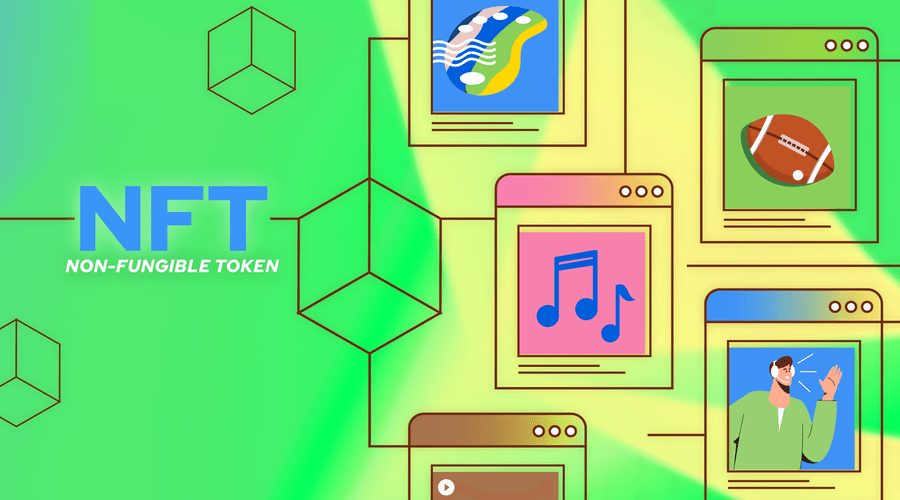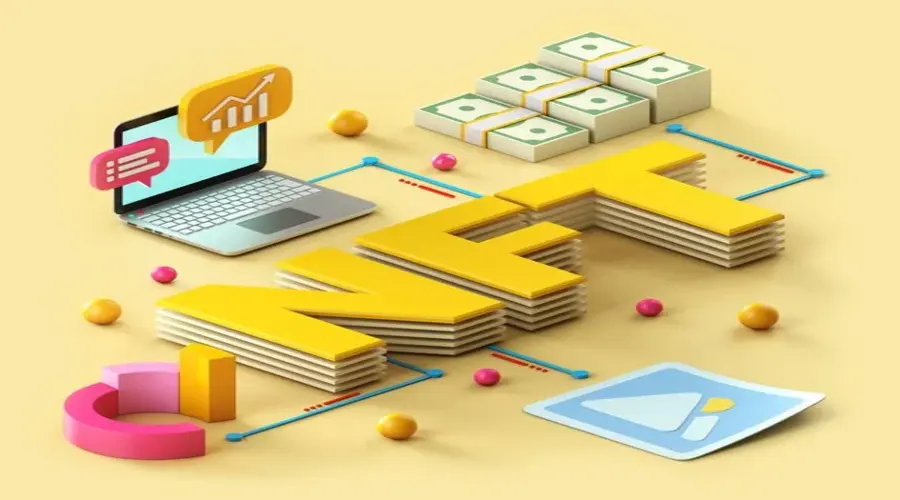Non-Fungible Tokens (NFTs) are unique digital assets that are stored on a blockchain, providing proof of ownership and authenticity. Unlike cryptocurrencies such as Bitcoin or Ethereum, which are fungible and can be exchanged on a one-to-one basis, NFTs are indivisible and represent one-of-a-kind items, whether they are digital art pieces, virtual real estate, or even event tickets.
The Rise of NFTs in Various Industries
Over the past few years, NFTs have gained immense popularity and disrupted traditional markets. Art enthusiasts can now own digital artwork authenticated through NFTs, while gamers can collect unique in-game items or virtual land. Musicians have explored NFTs to release limited edition albums or exclusive experiences for their fans. The possibilities are endless, and the excitement surrounding NFTs continues to grow.
NFTs have experienced a remarkable rise in various industries, revolutionizing how digital assets are perceived and exchanged. In the art world, NFTs have disrupted traditional notions of ownership and provenance. Artists can now create, sell, and own unique digital pieces authenticated through blockchain technology. This has attracted a new generation of collectors who value the scarcity and proven authenticity of these digital artworks.
In the gaming industry, NFTs have introduced a new dimension of ownership and value within virtual worlds. Players can now own and trade in-game assets, such as virtual weapons, characters, or virtual real estate. This creates a sense of rarity and value, allowing gamers to invest in and customize their gaming experiences.
Entertainment has also embraced NFTs, providing a platform for musicians, actors, and celebrities to release limited edition content or virtual experiences. Fans can collect exclusive digital memorabilia, such as music albums, concert tickets, or virtual meet-and-greets, creating a closer connection between artists and their supporters.
Sports enthusiasts can now engage with NFTs by owning digital trading cards or virtual moments associated with their favorite teams and athletes. These digital collectibles provide a new way for fans to show their support, participate in virtual communities, and even potentially benefit from their investments.
Lastly, NFTs have paved the way for the concept of virtual real estate. Users can buy and sell virtual land or spaces within online worlds, allowing for digital ownership and development. This opens up new opportunities for creativity, investment, and the creation of unique virtual experiences.
The rise of NFTs across these industries demonstrates the growing acceptance and adoption of digital ownership. As technology continues to advance, NFTs are likely to explore new frontiers, reshaping the way we perceive and interact with digital assets in the future.
NFTs and Scientific Conferences: A New Frontier
Scientific conferences bring together researchers, industry professionals, and enthusiasts to share knowledge, discuss breakthroughs, and foster collaborations. NFTs present a new and innovative way to enhance the conference experience, creating a digital representation of the event that participants can collect and cherish.

Benefits of NFTs for Event Participants
Enhancing Engagement and Networking Opportunities
By issuing NFTs to conference participants, organizers can incentivize engagement and facilitate networking opportunities. For example, NFTs can be earned by attending specific sessions, participating in discussions, or connecting with fellow attendees. These digital collectibles serve as virtual badges of honor, recognizing active participation and encouraging meaningful interactions.
Preserving Conference Memories with NFTs
Traditional conference swag often consists of physical items like T-shirts or tote bags, which can be easily forgotten or discarded. In contrast, NFTs provide a digital medium for preserving conference memories. Attendees can collect NFTs representing keynote speeches, panel discussions, or workshops they attended, creating a personalized digital archive of their conference experience.
Leveraging NFTs for Fundraising and Sponsorship
NFTs offer an exciting opportunity for fundraising and sponsorship within the scientific conference realm. Organizers can collaborate with sponsors or notable researchers to create limited edition NFTs, which can be auctioned or sold to raise funds for future events or charitable causes. Sponsors can benefit from the increased visibility and exposure associated with these unique digital collectibles.
Challenges and Considerations in Implementing NFTs for Scientific Conferences
While the integration of NFTs into scientific conferences brings many benefits, certain challenges and considerations need to be addressed. Security and authenticity of NFTs are crucial, as participants should have confidence in the uniqueness and verifiability of their digital collectibles. Intellectual property rights also come into play, as organizers and participants need to navigate the legal implications of creating and owning digital assets.
- Security and Authenticity: Ensuring the security and authenticity of NFTs is paramount. Participants should have confidence in the uniqueness and verifiability of their digital collectibles. Robust blockchain technology and smart contracts can be employed to provide a secure and tamper-proof environment.
- Intellectual Property Rights: NFTs raise questions about intellectual property rights. Organizers and participants must navigate the legal implications of creating and owning digital assets, ensuring that the rights of content creators and contributors are respected.
- Technical Infrastructure: Implementing NFTs requires a reliable technical infrastructure capable of handling the transactions, storage, and distribution of digital assets. It is essential to have a scalable and efficient system in place to accommodate the potential volume of NFTs during the conference.
- User Experience: The user experience of NFT integration should be seamless and user-friendly. Participants should be able to easily acquire, manage, and display their digital collectibles. User interfaces and platforms need to be intuitive and accessible to all participants, regardless of their technical expertise.
- Educating Participants: As NFTs are still a relatively new concept for many people, it is essential to educate participants about the value and benefits of these digital collectibles. Clear communication and guidance should be provided to ensure participants understand how to interact with NFTs and make the most of their conference experience.
- Environmental Impact: The environmental impact of NFTs has been a topic of concern due to the energy consumption associated with some blockchain networks. Exploring more sustainable options or supporting eco-friendly blockchain solutions can help address these concerns.
- Costs and Affordability: Implementing NFTs may come with costs, including transaction fees and development expenses. It is important to consider the affordability of NFTs for participants and strike a balance between offering valuable digital assets and ensuring accessibility.
- Data Privacy and Ownership: Managing data privacy and ownership rights is crucial when dealing with NFTs. Participants should have control over their personal information and understand how their data will be used within the NFT ecosystem.
By addressing these challenges and considerations, scientific conferences can successfully incorporate NFTs, enhancing the experience for participants and creating new opportunities for engagement, networking, and fundraising.
Future Outlook: The Evolution of NFTs in Scientific Conferences
As NFTs continue to gain traction, we can expect further evolution and innovation in the realm of scientific conferences. Advancements in blockchain technology and smart contracts will provide enhanced security and functionality for NFTs, ensuring their seamless integration into the conference landscape. Additionally, collaborations between researchers, artists, and technologists may give rise to entirely new forms of NFT-based experiences during conferences.
The integration of NFTs in scientific conferences presents an exciting future outlook for the evolution of these events. As the technology surrounding NFTs continues to advance, we can expect to see innovative developments and increased adoption in the conference space.
One area of potential growth is the enhancement of engagement and networking opportunities. Organizers can leverage NFTs to incentivize participation and facilitate connections among attendees. By offering exclusive NFTs as rewards for active engagement or as tokens of recognition, conferences can create a more interactive and immersive experience.
Moreover, NFTs can serve as a means of preserving conference memories. Participants can collect and curate digital assets representing the sessions they attended or the collaborations they formed. This digital archive allows for personalized and long-lasting mementos that can be revisited and shared beyond the conference’s duration.
Additionally, the integration of NFTs in scientific conferences opens up possibilities for fundraising and sponsorship. Limited edition NFTs can be created in collaboration with sponsors or renowned researchers, offering unique digital collectibles that can be auctioned or sold to support future events or charitable causes.
As blockchain technology and smart contracts continue to evolve, we can anticipate improved security, scalability, and functionality for NFTs in the conference space. This will ensure the seamless integration of digital assets while maintaining the integrity and authenticity of each NFT.
In conclusion, the future of NFTs in scientific conferences is promising. By leveraging these digital assets, conferences can enhance engagement, networking, and fundraising opportunities, creating a more dynamic and memorable experience for participants. As technology advances, we can look forward to further innovations and creative applications of NFTs in the conference landscape.
Conclusion
The convergence of NFTs and scientific conferences opens up a world of possibilities for event participants. By leveraging these unique digital assets, organizers can enhance engagement, facilitate networking, and preserve conference memories in a digital format. Furthermore, the integration of NFTs can provide opportunities for fundraising and sponsorship, contributing to the sustainability and growth of scientific conferences.
FAQs
Q1: How do NFTs differ from cryptocurrencies like Bitcoin? NFTs are unique digital assets that represent one-of-a-kind items, whereas cryptocurrencies like Bitcoin are fungible and can be exchanged on a one-to-one basis.
Q2: Can NFTs be transferred or sold? Yes, NFTs can be transferred or sold to other individuals, providing a means for collectors to exchange and trade their digital assets.
Q3: Are NFTs environmentally friendly? The environmental impact of NFTs has been a topic of discussion. Some NFTs are built on energy-intensive blockchain networks, but efforts are being made to explore more sustainable alternatives.
Q4: Can NFTs be replicated or counterfeited? NFTs are designed to be unique and tamper-proof due to their underlying blockchain technology. Counterfeiting or replicating NFTs is extremely difficult, ensuring the authenticity of these digital collectibles.
Q5: How can NFTs benefit scientific research? NFTs have the potential to contribute to scientific research by enabling new forms of fundraising, collaboration, and knowledge sharing within the scientific community.


